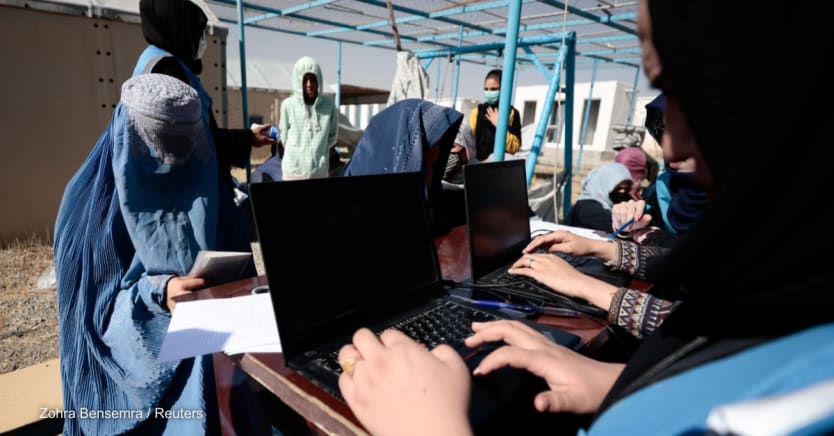
On Wednesday, the United Nations Security Council and the U.S. Treasury separately moved to ease the delivery of humanitarian aid to Afghanistan, amid a worsening hunger crisis and warnings of an economic collapse.
Aid groups had urged the Security Council to give them legal clarity so they could “effectively meet the spiraling needs across Afghanistan.”
The U.N. resolution, unanimously adopted by the 15-member council, creates carve-outs to the sanctions regime it imposed on the Taliban, so that aid groups can operate without fear of legal persecution. The resolution has a lifespan of one year and is still designed to keep funds from the Taliban.
Meanwhile, the Treasury announced three new general licenses which broadly expand the scope of humanitarian action that will not be subject to sanctions and also allow for some noncommercial development work, specifically on education, health, and water and sanitation. The licenses also expand the range of actors able to operate. The move from Washington is critical, given its outsized role in the global financial system.
Positive reaction: The U.N. resolution was welcomed by aid groups, with the International Committee of the Red Cross saying it would help with “life-saving” activities. Even so, some uncertainty lingers, as noted by Christian Aid, which urged the British government to clarify rules for agencies and banks.
What’s next: Afghanistan’s economy, once heavily reliant on foreign donors, could contract by 30%, according to the International Monetary Fund. “Merely allowing humanitarian actors to carry out their work is insufficient to meet the emergency needs Afghanistan is facing,” said Jacob Kurtzer, a humanitarian expert at the Center for Strategic and International Studies.
“These are both very important steps and we should take the wins when we get them. But I don’t think anyone should view the activities as sufficient. This solves a small part of the problem,” Kurtzer added.
Search for articles
Most Read
- 1
- 2
- 3
- 4
- 5
